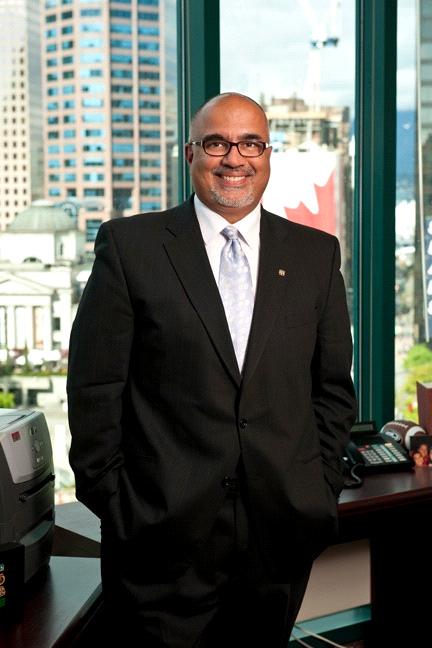Crown lawyers in three provinces are now able to carry out
pro bono work with far less exposure to legal claims and less risk of running into conflicts of interest.

Three year-long pilot schemes allowing Department of Justice lawyers to volunteer at legal clinics in British Columbia, Alberta, and Ontario have received official approval.
Crown counsel can only volunteer for departmentally approved activities and have traditionally been restricted in the level of insurance coverage they can obtain for
pro bono work. It has also been difficult for government lawyers to rule out potential conflicts of interests, due to the enormous scope of legal cases involving the federal government.
Under the new policy, lawyers will be insured to work at the three legal clinics in Vancouver, Edmonton, and Ottawa, on specific areas of law screened by the government to minimize conflicts. Justice Minister Peter MacKay announced the move during a
speech at the University of Calgary’s law faculty on Friday.
He said: “Accessibility to justice has become increasingly important in the complex society we live in today.
“Through this initiative and policy, many Justice Canada lawyers here in Alberta and across the country, can now volunteer their considerable legal skills and knowledge in providing
pro bono legal services to Canadians.”
The three approved projects are:
• The Wills Clinic operated by Access Pro Bono B.C., located at the Justice Access Centre at the Vancouver Courthouse. Trained
pro bono lawyers and articling students draft and execute simple wills, representation agreements, and powers of attorney for seniors living with low incomes and people who have terminal illnesses.
• The Edmonton Community Legal Centre, which provides a variety of
pro bono legal information and advice to people living with low incomes. Justice lawyers volunteering at the centre are limited to providing
pro bono legal advice on landlord and tenant matters.
• Law Help Ontario at the Ottawa Court House, which provides
pro bono legal help to unrepresented people living with limited means who are suing or being sued in civil court. Department of Justice lawyers volunteering at the clinic are limited to providing
pro bono legal advice to non-family civil litigants in Small Claims Court and the Ontario Superior Court.
The
pro bono policy document explicitly prohibits volunteer work in the areas of criminal law,
habeus corpus matters, and “any other matter involving the Minister of Justice and Attorney General of Canada.”
Volunteering will normally take place outside of working hours, except “on an exceptional basis,” it says.
The development has been several years in the making. In the past few years, some law societies have started providing no-fee liability insurance to Crown lawyers who participate in
pro bono activities approved by their law societies.
The insurance is now available to lawyers in Ontario, Alberta, B.C., and Saskatchewan.
This has opened up the possibility of
pro bono work, but the department has also needed to work with
pro bono organizations on practicalities such as avoiding conflicts of interest, explains Bill Basran, director general of the Department of Justice’s B.C. regional office and who has been closely involved with the project.
Basran has been volunteering at the Vancouver wills clinic and describes his time there as “an enormously gratifying experience,” that has involved helping people to put their affairs in order at the end of their life.
The department now wants to expand the
pro bono scheme to other cities and is considering opening clinics in Toronto and Saskatoon.
“We’ve received a lot of interest from Justice lawyers across the department,” he says.
Lisa Blais, president of the Association of Justice Counsel, says her organization “applauds the attempt to increase access to justice” and looks forward to the program being expanded.
The unavailability of insurance had previously been the biggest concern of ACJ members, regarding
pro bono work, she states.
Whereas
pro bono files sometimes contribute towards performance targets for lawyers in private practice, this has not been written into the policy for the Crowns.
“It would be up to individual managers to consider that type of contribution in performance appraisals,” says Blais.
Check out Canadian Lawyer
’s April issue for more news and views on pro bono work, including the results of a national survey of lawyers and firms.

 Three year-long pilot schemes allowing Department of Justice lawyers to volunteer at legal clinics in British Columbia, Alberta, and Ontario have received official approval.
Three year-long pilot schemes allowing Department of Justice lawyers to volunteer at legal clinics in British Columbia, Alberta, and Ontario have received official approval.